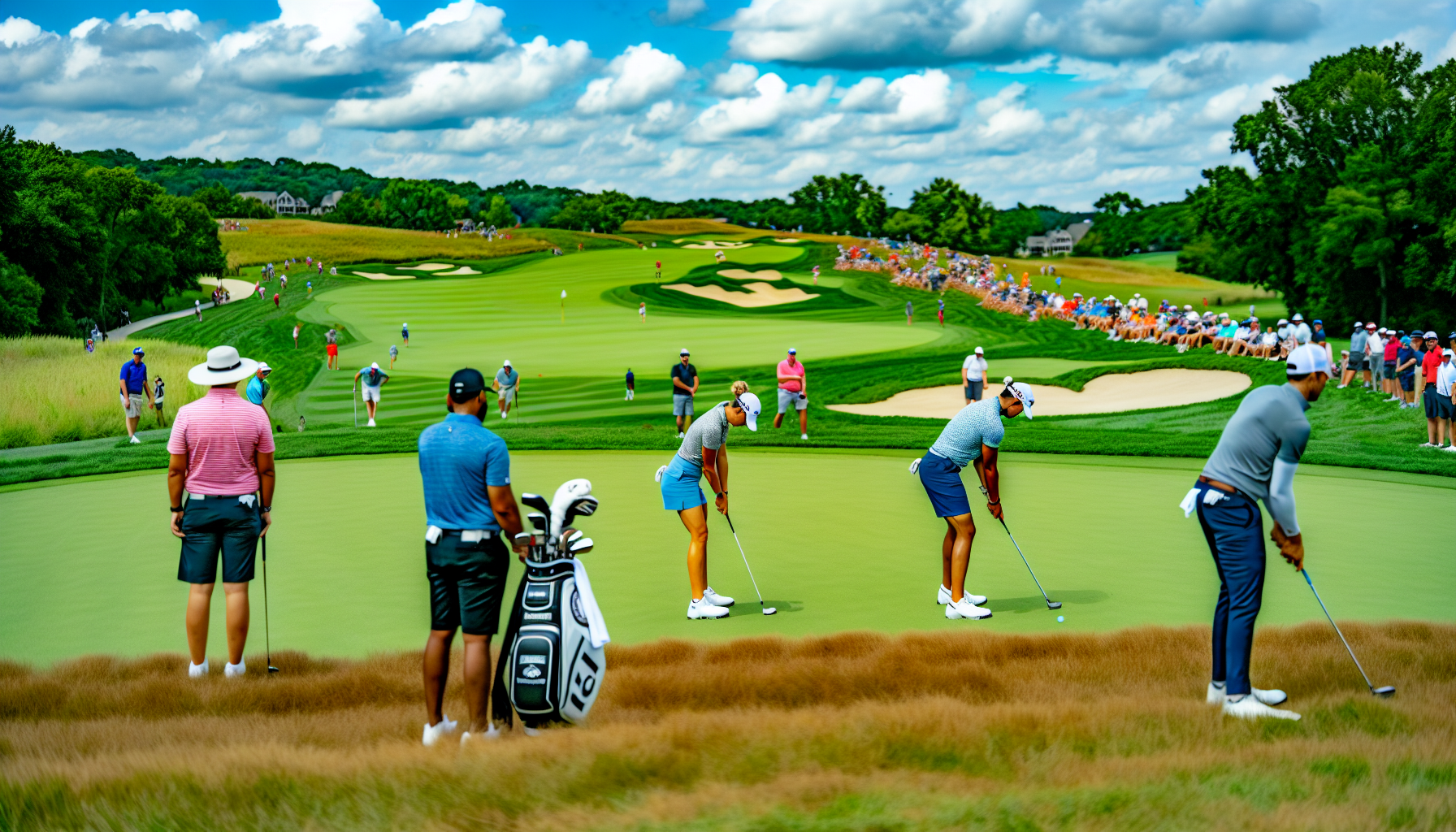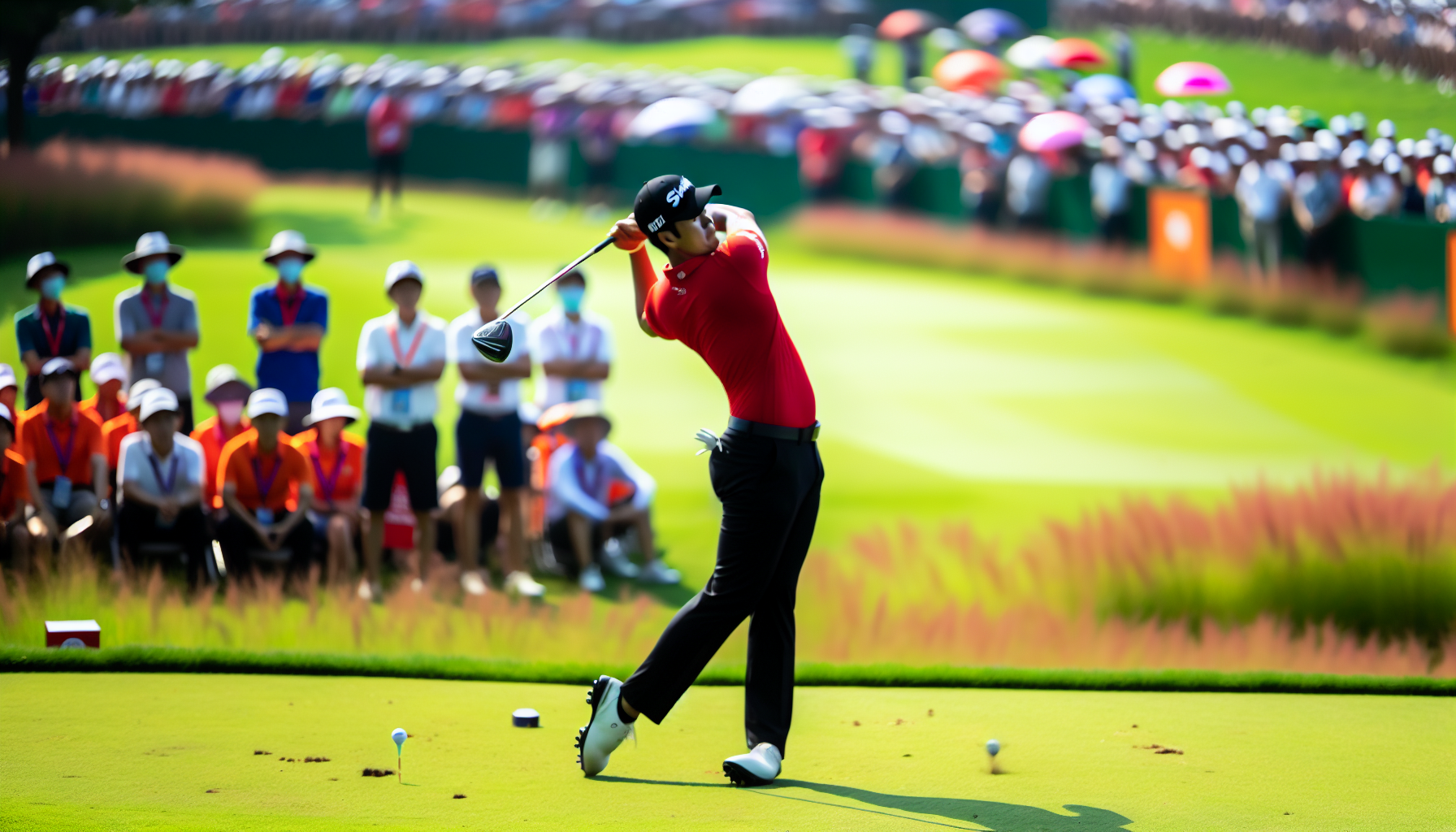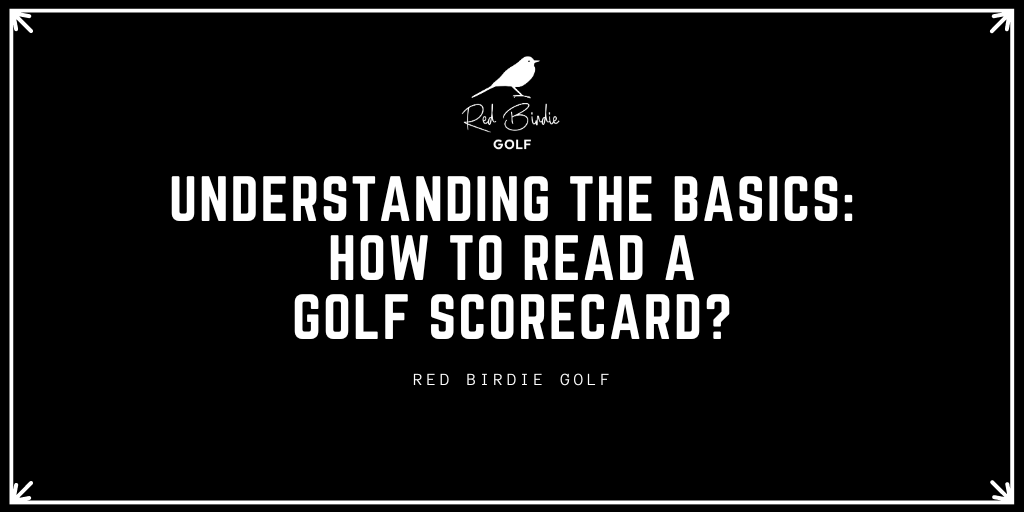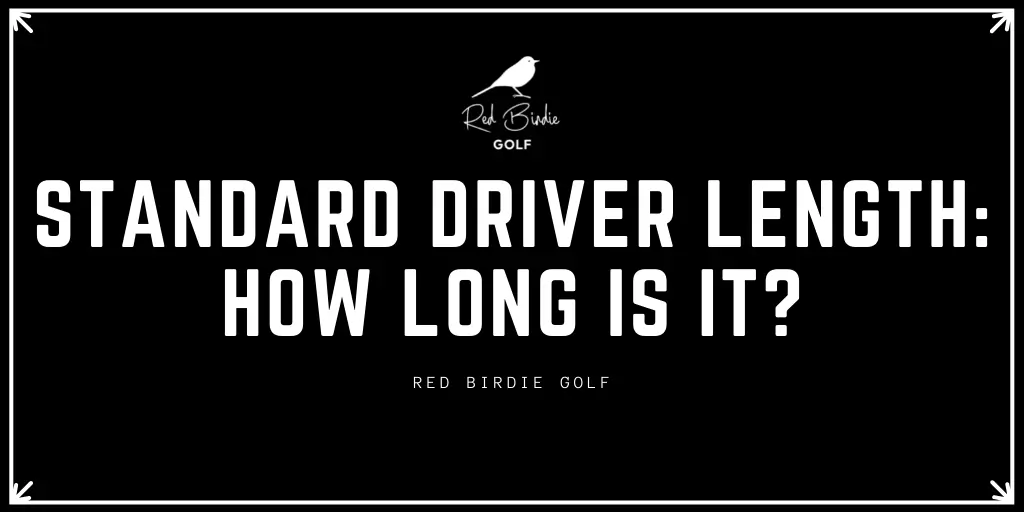How long is a golf tournament? Typically, professional tournaments last four days, stretching from Thursday to Sunday, whereas amateur and charity events generally wrap up in a single day. This article breaks down the durations across different types of golf tournaments and what influences their length.
Key Takeaways
Most professional golf tournaments take four days, typically from Thursday to Sunday, with amateur and charity events often lasting only a day.
Factors like ‘The Cut’ in professional tournaments and course difficulty impact the overall duration, with rounds taking 4.5 to 5.5 hours for pros.
Different formats like match play and special events (e.g., Ryder Cup) have varying durations, with weather conditions and level of competition also playing significant roles in how long tournaments last.
The Length of a Golf Tournament: A General Overview

If you’ve ever watched or participated in a golf tournament, you would know that these events are not quick affairs. Most professional golf tournaments, for instance, typically extend across four days. This four-day schedule traditionally begins on a Thursday and wraps up on a Sunday evening. But why is that so? What about other types of tournaments?
Golf tournaments can vary in duration due to factors like the level of competition, the number of players, and the format of the tournament. These elements can all influence the length of the event. Variability in tournament duration comes from the interplay of these factors. Let’s explore these factors in the context of different types of tournaments: professional, amateur, and charity events.
The Standard for Professional Tournaments
Professional golf tournaments are fascinating marathons, typically lasting four days. Over this period, professional golfers play a total of 72 holes. The tournament usually kicks off on a Thursday and concludes on a Sunday, with about half of the field playing through all 72 holes. However, the standard tournament schedule can sometimes vary due to conditions like weather or unforeseen delays.
Amateur Golfers on the Green

On the other side of the spectrum, we have club golf tournaments. These events typically golf tournament last a single day and involve playing 18 holes. For more prestigious club events, the tournament duration may last for a couple of days. This allows for a more extensive and competitive experience for the participants.
These amateur golf tournaments are designed to have shorter durations compared to most professional tournaments, such as a PGA Tour event or a PGA tournament, making them more accessible to golf enthusiasts of all skill levels.
Charity Tournaments: Golf for a Cause
Charity golf tournaments are a unique breed. While most amateur charity golf tournament events are organized as one-day, 18-hole events, these tournaments are about more than just golf. A round of golf in a charity event typically takes about 5 to 6 hours to complete. However, additional time is allocated for fundraising activities, including prize-giving and socializing with drinks, extending the overall event beyond the actual golfing.
The Anatomy of a Professional Golf Tournament Round

Let’s break down a professional golf tournament round. A standard round consists of 18 holes, with the average time for a professional golfer to complete a round typically ranging between 4.5 to 5.5 hours. But how is this time spent, and what factors can influence the duration of a round?
Professional rounds are a blend of skill, strategy, and even a bit of luck. From the first tee-off to the final putt, players navigate the course, evaluating each shot and making decisions that could drastically affect their score and, in turn, the duration of their round. Now, let’s explore in more detail the components of a professional round and their impact on the duration of play.
From Tee-off to Final Putt
A professional golfer typically takes about 4.5 to 5 hours to play a round of golf in stroke play formats, which makes one wonder how long does a golf round actually last. Factors such as the length and difficulty of approach shots, and the complexity of greens contribute to a slower pace of play, with stroke play rounds often exceeding 4.75 hours.
Major tournaments such as The Masters, the US Open, the PGA Championship, and The Open Championship have specific average play paces, ranging from 4.5 to just under 5 hours.
The Impact of ‘The Cut’
In professional golf tournaments, a significant factor that impacts the overall duration is ‘The Cut’. After the first two rounds, a cut is typically made to determine which players can continue in the event. This cut eliminates those too far out of contention and focuses on competitors with a chance of winning, thus impacting the overall duration of the tournament.
Players who make the cut get the opportunity to compete in the remaining rounds.
Unpacking Match Play Events
The world of golf tournaments is not just limited to professional and amateur stroke play events. There’s another exciting format that brings a unique dynamic to the game – the match play events. These tournaments have a unique structure that differs from stroke play, impacting the overall duration of the tournament. Invitational match play championships are among the longest golf tournaments, lasting over five days due to the number of golfers and the bracket system they employ.
An individual match play event, on the other hand, can last approximately 3.5 to 4 hours. But what makes match play events different? The answer lies in the structure and dynamics of the competition. In match play events, two golfers play head to head, with the objective to win more holes than their competitor. This unique structure, coupled with prestigious championships like the World Match Play tournaments, adds an extra layer of complexity and excitement to the game, influencing the overall duration of the event.
The Dynamics of Head-to-Head Competition
In a match play golf tournament, rounds are defined by two golfers playing head to head, with the objective to win more holes than their competitor. The match play winner is determined once it becomes mathematically impossible for the opponent to win or tie the match, potentially shortening or lengthening the round depending on the players’ performance.
This head-to-head nature of the competition makes match play games more intense and demanding, requiring increased stamina and strategic planning from the players.
Prestigious Match Play Championships
Now, let’s look at the crème de la crème of match play events – the prestigious championships like the World Match Play tournaments. These events are typically week-long affairs, lasting around five days.
Despite considering format changes, the WGC-Dell Technologies Match Play has maintained its match play format throughout the tournament, adding to the event’s complexity and influence on duration.
The Role of Golf Courses in Tournament Duration
Did you know that the golf course itself plays a significant role in the duration of a tournament? From the layout of the course to the weather it experiences, these factors can significantly impact the pace of play and, ultimately, the length of the tournament. But how exactly do these elements contribute to the duration of a golf tournament?
The design and difficulty of the course, including elements like water hazards, bunkers, and the distances between holes, can significantly slow down play and extend the duration of a tournament. Let’s delve deeper into these aspects and how they influence the duration of golf tournaments.
Course Difficulty and Pace of Play
The difficulty of the course and the presence of challenging holes can significantly slow down the pace of play, extending the duration of a tournament. Factors that can influence player performance and alter the pace of play during a tournament include:
The orientation of the holes in relation to the wind direction
The condition of the course
The placement of hazards and obstacles
The length and layout of the holes
These factors should be taken into consideration when planning and organizing a tournament to ensure a smooth and efficient pace of play.
Additionally, rounds involving players of lower skill levels can take considerably longer to complete, sometimes exceeding 6 hours.
Weather Conditions on the Fairway
Weather conditions are another key factor that can impact the duration of a golf tournament. Rain or wind can create adverse conditions that make the course more challenging and slow down play. These conditions can impact the speed and difficulty of the game. For instance, rain delays are caused by puddles on greens or fairways, requiring play to be postponed until the surface is clear of standing water. Lightning, on the other hand, prompts immediate suspension of play with specific safety instructions for players.
High winds can interrupt play and cause infrastructure damage, exemplified by fallen trees during the 2023 Masters Tournament, which can extend the tournament’s duration.
Golf Tournament Formats and Their Timelines

Golf is a versatile sport, and this versatility extends to the numerous formats available for tournaments. These formats can greatly influence the duration of golf tournaments. From traditional stroke play and match play formats to unique formats like:
ChaChaCha
Chapman
GolfSixes
Lone Ranger
Nassau Scoring
Stringball
Bingo Bango Bongo
The length of play can greatly vary depending on the format. But how do these formats impact the tournament timelines?
Let’s explore the timing contrasts between stroke play and match play formats, as well as delve into the timelines of special formats like the Ryder Cup, Presidents Cup, and others.
Stroke Play vs. Match Play: A Timing Contrast
Stroke play tournaments typically consist of a set number of rounds where each shot is counted, often taking longer than match play formats. On the other hand, prestigious match play championships can last three to five days, elaborating on the format’s complexity and influence on duration.
In match play, if a player secures more holes than remain on the course, the match ends early, potentially reducing the overall tournament duration.
Special Formats: Ryder Cup, Presidents Cup, and Others
Special golf tournaments like the Ryder Cup and Presidents Cup offer an interesting contrast. These events last for three days, featuring a mix of match play rounds. These involve four-ball, foursomes, and singles that contribute to the overall three to five-day duration of these events.
The Presidents Cup, for instance, features a pace of play averaging 4.33 hours, which is indicative of the faster pace compared to other golf formats.
The Influence of Competition Level on Tournament Length
The level of competition in a golf tournament can have a significant impact on its duration. Major championships in professional golf generally last for four days, reflecting the high level of competition and the 72 holes typically played. But how do different competition levels influence the duration of golf tournaments?
Let’s look at the different competition levels, from club-level contests to golf’s longest marathons, the Majors, and how they impact the duration of golf tournaments.
Club-Level Contests
Club tournaments, often featuring tournament play, are typically compact, designed to fit within the constraints of a single day or over a short period such as a weekend. The flexibility in club-level contests regarding the format used, which can range from stroke play to match play, allows the duration to be decided by the club itself.
While many club tournaments are single-day events, prestigious club championships may extend over multiple days, typically encompassing a weekend.
The Majors: Golf’s Longest Marathons
The Majors represent the pinnacle of professional golf, and their duration reflects this. Major golf championships often include practice rounds that start from Monday and can continue through Wednesday. The total duration of a major championship, including practice rounds and the standard tournament days, typically spans an entire week. If a major championship requires a playoff due to a tie at the end of regulation play, formats vary by tournament.
Why Golf Tournaments Can Extend Beyond Scheduled Play
Have you ever watched a golf tournament that seemed to drag on longer than expected? There are a few reasons why a golf tournament’s end times can be affected, potentially leading to the tournament extending beyond the planned schedule. These reasons include sudden death and playoff scenarios, and various delays or interruptions.
Let’s delve into these factors and explain how they can extend a golf tournament beyond its scheduled play.
Sudden Death and Playoff Scenarios
Playoffs are initiated in the event of a tie at the top of the leaderboard, adding unexpected time to the overall length of the tournament. Professional majors and special tournaments may involve a playoff if there is a tie at the top of the leaderboard after the standard duration of the tournament.
If the lead is shared after the completion of 72 holes in a professional tournament, a playoff is initiated to decide the winner.
Delays and Interruptions
Aside from playoff scenarios, other delays and interruptions can also extend the duration of a golf tournament. Organizers may limit the number of participants or implement strategies to speed up play, such as enforcing time limits for each hole. Tee-time intervals and the management of gap time between groups are key factors in maintaining a good pace of play.
With effective management and strategic planning, the duration of a tournament can be reduced.
Summary
From professional tournaments to club contests, and from stroke play to match play events, we’ve explored the various factors that influence the duration of golf tournaments. The layout and difficulty of the golf course, the competition level, the tournament format, and even the weather can all impact how long a tournament lasts. So, the next time you’re watching or playing in a golf tournament, you’ll have a better understanding of what goes into the timing of the event. Remember, whether the tournament is a quick round at the local club or a week-long Major, golf is all about enjoying the game and embracing the challenges it presents.
Frequently Asked Questions
How many games are in a golf tournament?
A golf tournament usually includes 72 holes played over 4 days, which consists of 4 rounds of 18 holes each. Some amateur tournaments may have variations with fewer holes, but that’s the standard format.
Are golf tournaments 3 or 4 days?
Most golf tournaments, including PGA tournaments and major championships, are typically four days long, with 72 holes played. So, it’s safe to say that most tournaments are indeed four days long!
How long does a round of golf take in a tournament?
In a tournament, a round of golf generally takes around 3-4.5 hours for an 18-hole round, with professional golfers averaging 10 minutes per hole. Enjoyment is often linked to the pace of play, leading to recent policy changes by the PGA.
How long does a golf tournament usually last?
A golf tournament usually lasts between 4.5 and 5.5 hours for the professionals, as the pace of play can be slow due to the stakes involved.
What factors influence the duration of a golf tournament?
The duration of a golf tournament is influenced by factors like competition level, player count, format, course layout, and weather conditions. These factors can significantly affect how long the tournament lasts.








